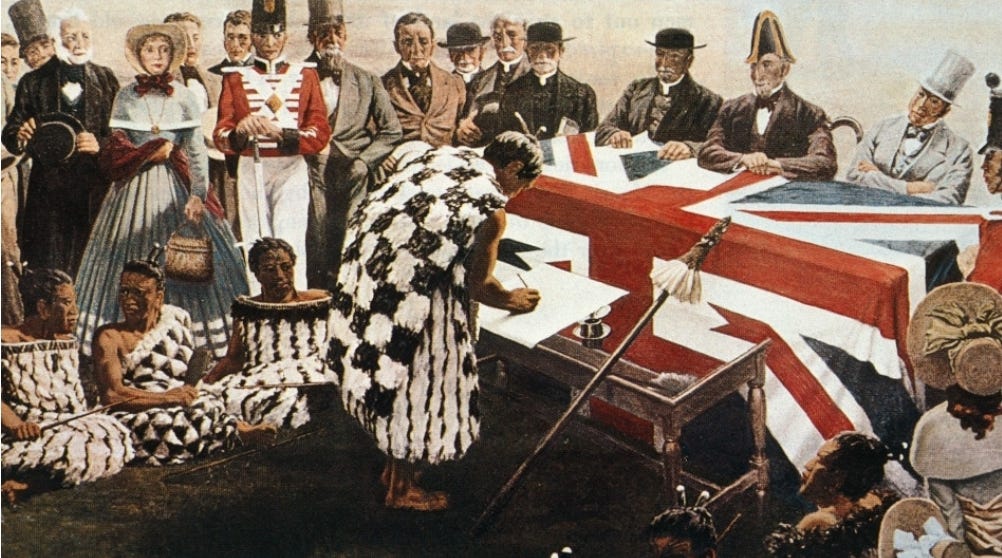Is co-governance racist? / A.J. Hendry
For many pākehā, at the heart of the co-governance debate is this idea that the conversation is about racial privilege. But is that really the heart of this conversation?
As a kid, I grew up with little to no understanding of Te Tiriti. I was conditioned to believe that tangata whenua had ceded sovereignty to the Crown, and that any talk of co-governance, or "special privileges" for māori, was racism and discrimination.
I had very little understanding of colonization, it's impact, and the manner in which the Crown had failed to uphold its responsibilities under Te Tiriti.
Unfortunately, I believe this misunderstanding is not all that uncommon amongst pākehā. Public discourse alone reveals how very little many pākehā understand about our own Treaty and the rights and responsibilities that come with it.
It is this misunderstanding that clouds the conversation around co-governance.
The reality is, the Crown (acting on behalf of pākehā) and tangata whenua, signed a Treaty that provided both parties with rights and responsibilities. The issue we have, is that the Crown, and by extension pākehā, have enjoyed the privileges that come with this agreement, without upholding the responsibilities that sit alongside them.
Time may have lapsed, the Crown may have refused and failed to uphold their obligations, but time, nor failure, does not absolve us of our responsibilities.
Te Tiriti stands as a testament to the Crowns failure. We may wish to ignore it, but it's not going anywhere. Our legal right to be in the whenua is bound within that document. And so it stands still, calling pākehā back, refusing to forget the promises our ancestors wrote into the history of this land.
When we talk about co-governance, this is what we're talking about.
Despite what many pākehā feel, co-governance is not racism, it is a Te tiriti imperative. The reason many of us feel so uncomfortable with this, is because we have never honored our side of the Treaty.
This is not about "race based privilege", or "one person, one vote", this is about the reality that the Crown agreed to an equal partnership with tangata whenua, and than failed to uphold that agreement. The Crowns failure in the past does not absolve us of our responsibility in the present.
Honoring Te Tiriti means recognizing there are two partners, and one should not dominate the other.
What feels like loss of power, is really a balancing of the scales.
If we want to heal this nation, if we want to see Aotearoa thrive, than we, as pākehā must take responsibility, yes for the failures within our past, but equally, for our responsibilities within our present, looking forward towards our shared future together.
#LoveIsTheWay





